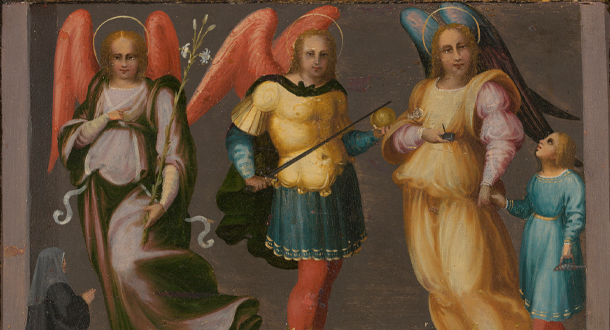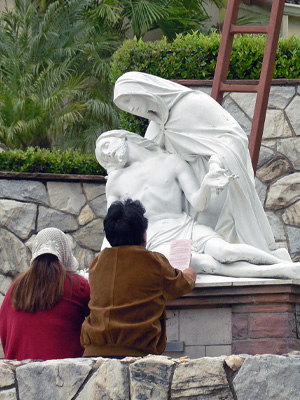
Scripture:
Reflection:
Spending some time with Paul’s letter to the Galatians of this Monday morning, we read how Paul is disappointed in the fickleness of this Galatian community. They seem to have quickly forgotten certain teachings Paul had inspired within them, and now they began to listen to and follow other teachings. He reasserts that the Gospel he proclaimed to them was not his, but it had come from Christ. Therefore, to not listen to the Gospel, he proclaimed was to not listen to Christ. It even implies that one is rejecting what Christ has taught.
The word “gospel” comes from the Greek word “eualgelion.” Breaking that word apart, “eu” translates to the English word “good” and the word “angelion” best translates to the English word “announcement.” (Notice the word angel in angelion, Scripturally, angels have been the ones who make God’s announcements.) Thus, we frequently say that the word gospel means good news.
If you read this text, you’ll notice Paul uses the word Gospel to mean two different things. Sometimes he capitalizes the term and sometimes he leaves it lower case. This is to make his point. When the word “gospel” is capitalized, Paul is referring to the Gospel which Jesus brought to us. It is written in lowercase when Paul is referring to teachings away from the teaching of Christ. So in reading this text, the capitalized word “Gospel” has a completely different meaning than the lowercase “gospel.”
Yet isn’t that where we are today? I live in Chicago. Last weekend we had 43 shootings reported to the police. That doesn’t include the shootings that weren’t reported, or the other murders, or the numerous other violent and nonviolent crimes that don’t get reported to the general public. Most people who are perpetrators of these crimes aren’t operating out of a Gospel with a capital “G.” They operate out of self-centered desires. They base their good news on self-centeredness. What benefits their personal self is what they deem good news. This kind of attitude rarely takes others into consideration.
Take for instance where we are amidst this pandemic. With over 200,000 US citizens having already died we all meet people who think only about themselves. We all meet people who don’t take precautions on spreading the virus to others. Nor do they care if they spread the virus to others.
Or another example are the over seventy-nine million displaced people in our world who have been forced from their homes by conflict and persecution. Thirty million are refugees. And half of them are under the age of eighteen. Over two-thirds came from just five countries. Do those in power in these countries think about good news in terms a capital letter “G” or a small “g”? And with this idea or thought in mind, how does the rest of the world receive these displaced people? What is Good News in the midst of actions which were motivated by self-absorption?
Four years ago in a parish I was working, after a particular Sunday liturgy, I discovered Maria dancing in front of the Blessed Virgin Mary statue. She was bubbling over with enthusiasm. Her eyes were luminous. And her whole body was moving to a song playing deep in the core of her spirit. I inquired, “Maria what brings you such a joy today?” With tears in her radiant eyes she announced, “We bought a house!!! We own a house!! Praise Jesus! After years of living in refugee camps and Government housing, we now OWN a house! I never thought this would happen.” I knew I was standing before someone who knew and lived Gospel with a capital “G.” And Luke’s words were as true at that moment as they were on the day of the Annunciation, “Blessed are you who believe that the promise of the Lord would be fulfilled.”
As we hear Paul’s letter today, we can almost feel his disappointment and frustration as he tries to bring to light the Good news of the Gospel of Jesus which is beyond any human definition of good news. I suggest our work today is to be more attentive to Good News, amidst the world looking to please themselves. And then the big challenge is to find exciting ways to share and proclaim that Good News.
Fr. David Colhour, C.P. is the local superior of St. Vincent Strambi Community in Chicago, Illinois.







